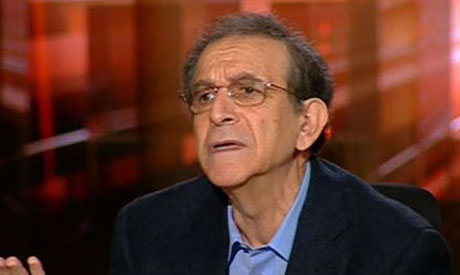
Deputy Prime Minister and Minister for Higher Education Hossam Eissa (Photo: AO)
Egypt's deputy prime minister, Hossam Eissa, has said that the Muslim Brotherhood is in a state of "desperation" following the ouster of Brotherhood figure Mohamed Morsi from the presidency in July.
"What the Brotherhood did when it reached power in Egypt was unacceptable," Eissa told Kuwaiti newspaper Al-Watan in an interview Saturday. "The Egyptian people will not allow them back into power for at least the next 30 years."
The Brotherhood, a major political force that was suppressed by former president Hosni Mubarak, quickly came to prominence after the 2011 revolution which ousted him. The group's political wing secured a majority in the country's first free parliamentary elections, and in June 2012 leading Brotherhood figure Morsi became the country's first freely elected president.
Controversial moves by Morsi, such as a constitutional declaration in November 2012 that allotted him dramatically expanded powers, led to quickly escalating opposition.
Eissa was appointed deputy prime minister following the announcement of Morsi's ouster by the military three days after mass protests were staged demanding his exit in June 2013.
A political roadmap for the interim period was announced by army chief Abdel-Fatah El-Sisi upon the ouster of Morsi. It includes the suspension of the 2012 constitution, passed under Morsi, to be followed by fresh presidential and parliamentary elections.
Interim President Adly Mansour announced Saturday that the referendum on the amended constitution will be held on 14 and 15 January 2014.
"The Egyptian people will accept this constitution," Eissa said, adding that the amended draft is "very good" and that it "suits everyone despite differences in points of view."
The amended draft faces has faced some criticism from rights groups, who argue that it entrenches military privileges. They also contest the charter's preservation of the right of the military judiciary to try civilians in certain cases.
Eissa also serves as minister of higher education. He was recently strongly criticised by students and political activists after he made a statement exonerating the interior ministry in the killing of student Mohamed Reda, who was shot dead inside a Cairo university campus last month amid security forces' continuing attempts to quell defiant student protests.
Short link: